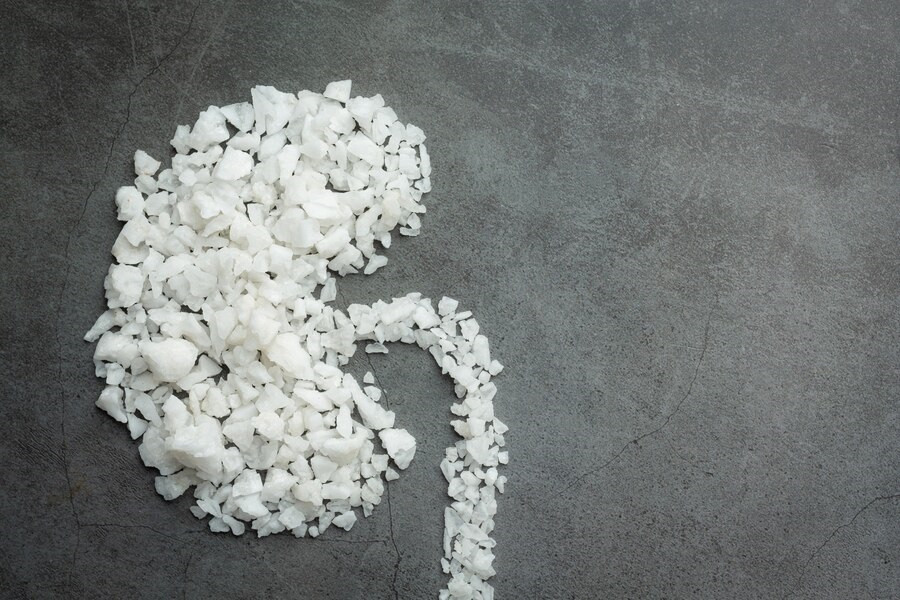Urine is a liquid waste product that the kidneys produce and is excreted through the urinary tract. Typically, urine consists of water, urea, potassium, sodium, and chloride. However, in individuals with diabetes, a condition known as glycosuria can occur, where sugar is present in the urine. Is this condition dangerous, and how can it be managed? Let’s find out more below.
What is Glycosuria?
Glycosuria, also referred to as glucosuria, is a condition where glucose or other sugars such as lactose, fructose, or galactose are detected in urine. A diagnosis of glycosuria is made when a random urine sample shows sugar levels exceeding 0.25 mg/ml.
Normally, glucose appears in urine only when blood sugar levels are excessively high. In healthy individuals, the kidneys filter glucose and reabsorb most of it back into the bloodstream.
The body regulates blood sugar levels to maintain a proper balance. While sugar is essential as a source of energy, excessive levels can damage organs and nerves.
The presence of high sugar levels in urine may indicate kidney function problems. This condition often shows no specific symptoms and can only be identified through medical testing.
Symptoms of Glycosuria
Glycosuria often does not produce noticeable symptoms. Many individuals may have glycosuria without being aware of it. However, if left untreated, it may lead to symptoms such as:
- Intense thirst or hunger
- Dehydration
- Increased frequency of urination
- If glycosuria is associated with type 2 diabetes, you might experience additional symptoms like:
-
- Fatigue
- Unexplained weight loss
- Blurred vision or other visual disturbances
- Slow-healing wounds
- Darkened skin in areas such as the armpits, neck folds, or inner elbows
Causes of Glycosuria
Glycosuria arises due to underlying medical conditions. The main causes include:
- Impaired Insulin Function: When the body fails to produce or use insulin effectively.
- Excess Sugar in the Bloodstream: When blood sugar levels surpass what the body can process.
- Kidney Issues: When the kidneys fail to reabsorb glucose properly.
Specific conditions linked to glycosuria include:
- Type 1 and Type 2 Diabetes: Insufficient insulin production or poor response to insulin by the body.
- Gestational Diabetes: A form of diabetes that develops during pregnancy.
- Fanconi Syndrome: A condition where the kidneys struggle to reabsorb essential substances like potassium, phosphorus, and glucose, leading to their excretion in urine.
- Renal Glycosuria: A rare genetic condition causing glucose to pass into the urine despite normal blood sugar levels due to a mutation affecting kidney function.
Treatment for Glycosuria
The treatment approach for glycosuria depends on its underlying cause. Typically, managing diabetes and adopting a healthy lifestyle can help normalize sugar levels in urine. Recommended treatments include:
- Incorporating vegetables and whole grains into your diet
- Engaging in regular physical activity or exercising for at least 30 minutes daily
- Using insulin therapy or anti-diabetic medications
Glycosuria is commonly linked to diabetes but may also result from kidney diseases. If a urine test indicates glycosuria, it’s important to consult a doctor for appropriate evaluation and treatment. You can also access medical consultations using the Ai Care app, available for download on the App Store or Play Store.
Looking for more information about other diseases? Click here!
- dr Nadia Opmalina
WebMD Editorial Contributors. What Is Glycosuria?. Available from: https://www.webmd.com/diabetes/what-is-glycosuria
Cleveland Clinic. Glycosuria. Available from: https://my.clevelandclinic.org/health/diseases/glycosuria
Jewell, T. (2023). What Causes Glycosuria and How Is It Treated?. Available from: https://www.healthline.com/health/glycosuria
Fletcher, J. (2023). What to know about glycosuria. Available from: https://www.medicalnewstoday.com/articles/326197











